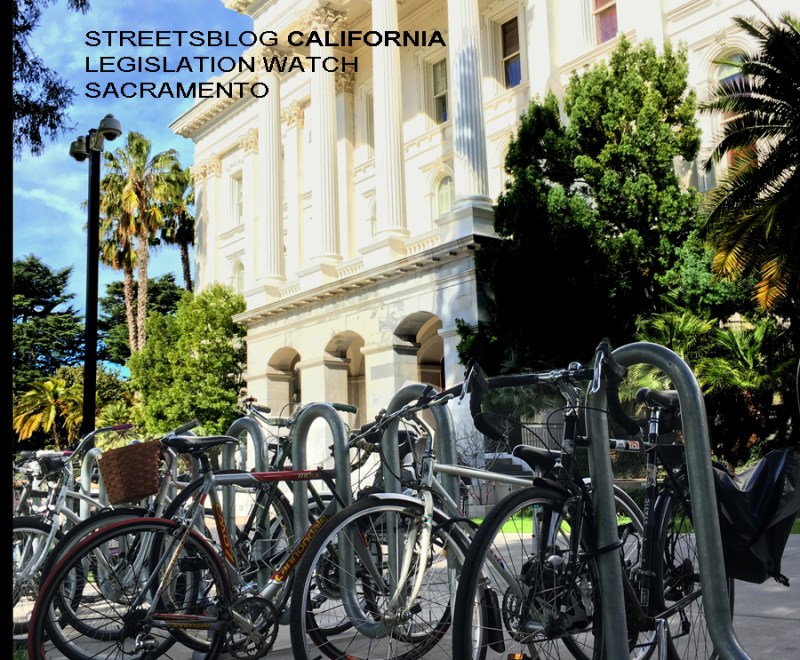With no spoken opposition, Assemblymember Laura Friedman's bill on minimum parking requirements, A.B. 1401, passed the Assembly Committee on Local Government on a 5-0 vote. It now must be heard by the Assembly Committee on Housing and Community Development, chaired by Assemblymember David Chiu, before proceeding to the floor of the Assembly.
The bill aims to remove minimum parking requirements from new housing built in areas served by frequent transit. Typically city zoning codes require a minimum number of parking spaces in new developments, but the number is not based on how much parking is actually needed and doesn't require an assessment of how much parking is already available.
These requirements hurt housing affordability (a single parking space can add $12,000 to $75,000 to the cost of a housing development), take up space that could be used for housing, and encourage driving. At the same time, many of these parking spaces are not even used - and residents pay the cost of the parking even if they don't own a car.
Bill author Assemblymember Friedman pointed to what happened when the city of Buffalo ended parking requirements within its city limits. Some developers built less parking; some made agreements to share parking; some even built more parking than they would have otherwise. But the main result, said Friedman, was that "a lot of housing was produced, with less parking than would have been required before the minimums were eliminated, but with enough for the residents."
Several California cities - including Sacramento, San Francisco, Berkeley, and San Diego - have already adopted similar rules, but this bill would expand the practice to all cities, in areas well-served by transit. "This bill says it's up to developers to right-size parking," said Friedman. "Right now, it's hard to build housing because of high costs. Parking minimums encourage a car-centric approach that makes walking and biking impossible because everything is surrounded by seas of parking."
"Cities are fully capable of creating better transit and shared parking. Right now there's no reason for them to create good transit if they're just having everyone bring cars in, which increases congestion and bad health effects."
If a city's transit isn't very good, she said, "This is the incentive to create that."
Committee members raised concerns, specifically about the need to increase public transit and the different needs of smaller cities.
"We've been building too much parking for many many years, in large part in response to people being afraid of development," said committee member Assemblymember Richard Bloom (D-Santa Monica). "This has led to severe shortage of housing - it's not the only reason housing costs are high, but parking is definitely one of the drivers. This is an important conversation for us to have."
"We learned in the Bergamot station area that there were hundreds and hundreds of unused parking spaces, primarily in commercial developments," he added. "They had been so overbuilt; it was a total waste of money."
But he raised one concern: how eliminating minimum parking requirements would affect the production of affordable housing, given that parking is sometimes used as a card when negotiating density bonuses.





